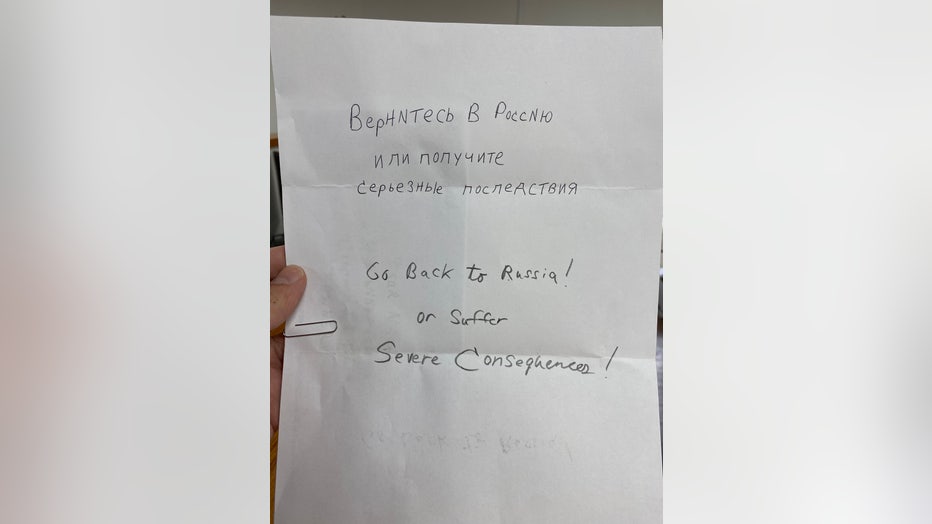California caviar company targeted by harassment despite not being Russian
Bay Area caviar company targeted by anti-Russian harassment despite not being Russian
Tsar Nicoulai Caviar, a Northern California producer of sustainably farmed caviar, with a San Francisco caviar cafe outpost, has been targeted by anti-Russian harassment in recent weeks.While Tsar Nicoulai s ounds Russian, it's not. KTVU's Emma Goss reports.
SAN FRANCISCO - Tsar Nicoulai Caviar, a Northern California producer of sustainably-farmed caviar, with a San Francisco caviar café outpost, has been targeted by anti-Russian harassment in recent weeks.
While Tsar Nicoulai sounds Russian, it's not.
The business, with offices in Concord and a 50-acre farm in Winton, was started in 1984. The founders, a Swedish family in San Francisco, named the caviar company after the founder's grandfather, named Nicolai. They included "tsar" in the brand to give it an old-world, Eastern European flair, according to Tsar Nicoulai president and farm co-owner, Ali Bolourchi.
"We're California, 100 percent American owned and operated," Bolourchi said, adding that the café inside San Francisco's Ferry Building, and the company's e-commerce website, have received hate mail, chat inquiries, and Instagram messages "that are pretty nasty."
Bolourchi said he's received intimidating letters since Russia invaded Ukraine.
One handwritten letter told the owners to "go back to Russia or suffer severe consequences." He said he reported it to police and stepped up the café's security, including installing new cameras.

The owners of Tsar Nicoulai reported this letter to the police. It says, "go back to Russia or suffer severe consequences."
Employees at the café wear pins displaying the colors of the Ukrainian flag with the words "support Ukraine," and two Ukrainian flags are prominent on a table at the café.
These symbols are meant to show support for the war-torn country, and also to defend the business against harassment, Bolourchi said.
Online sales have also taken a massive hit.
Bolourchi estimates Tsar Nicoulai has seen a 50% dip in sales since the end of February.
Sometimes Bolourchi responds to angry online messages with details on the Tsar Nicoulai's history. Now and then, commenters end up sending an apology.
"We'll take it," Bolourchi said. "It's baby steps."
Pushkin, a Ukrainian-owned restaurant nearby, is facing similar harassment by people who mistake it for a Russian business.
Sergey Shukaylo, the owner, said he's changing the restaurant's name, no longer wanting to be associated with the iconic Russian writer and poet, Alexander Pushkin. The new name, Leleka, means "stork" in Ukrainian.
Bolourchi has considered a temporary name change, reverting to Tsar Nicoulai Caviar's initials, TNC, which the business at one time in its history went by.
But he isn't ready to go there yet.
"I think ultimately," Bolourchi said of the name, "it's part of our brand's identity."

